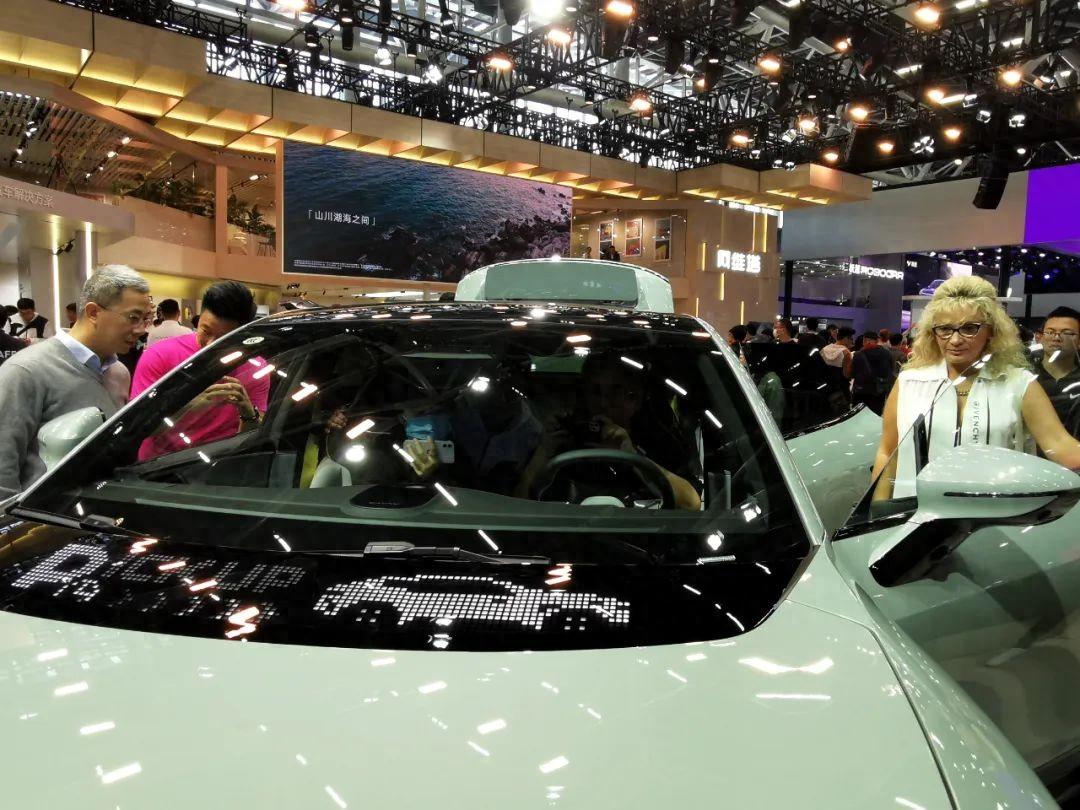
Automobile culture is a very broad content, and any topic that can be related to automobiles is part of automobile culture.
Author | Liang Hao
Editor | Anfield
Title map | New Weekly reporter Liang Hao photo
On the eve of the opening of Guangzhou Auto Show, the legendary Xiaomi car finally appeared. Almost everyone’s eyes are focused on this new medium-sized and large luxury car, although its figure only appears in the latest issue of the Announcement of Road Motor Vehicle Manufacturers and Products of the Ministry of Industry and Information Technology.
When a new car goes on the market, the price is naturally the focus of people’s greatest interest.
Although an insider quickly revealed that the price of Xiaomi’s new car "will be in the range of 300,000-400,000", public opinion still has doubts about this high price. Many netizens think that Xiaomi’s car "if it is really priced like this, it means that it will not be the’ first car for young people’".
This is just a particularly common phenomenon in the current China automobile market. In fact, in the past two or three years, whenever a new car came on the market, there were a lot of similar discussions and speculations on the Internet.
Nowadays, the number of middle-class cars is getting higher and higher, and most netizens in Jane have become accustomed to it. After all, at this year’s Guangzhou Auto Show alone, 59 models of the world’s first cars made their debut, and exhibitors all over the world know that the China market still has great potential to be tapped.
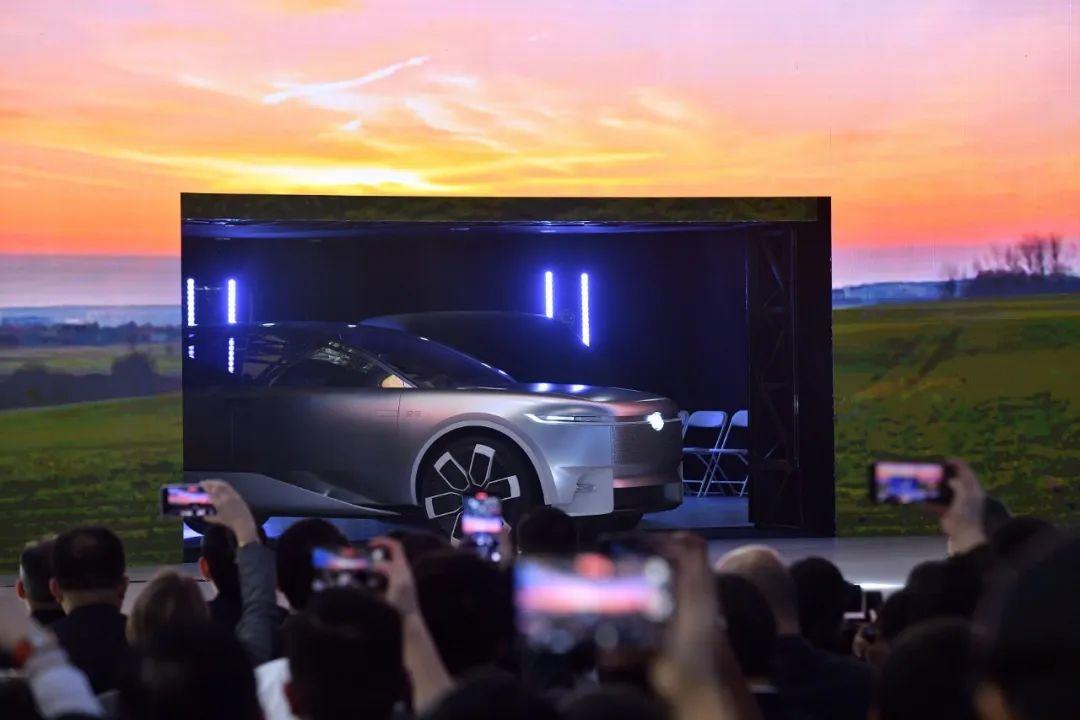
This year’s Guangzhou Auto Show has a total of 1,132 cars, and many car brands compete in the same field. (Photo/vision china)
It’s only been more than 20 years since most people in China really got in touch with cars, but in the world’s largest car market, cars are still the consumer goods that can best embody and carry the modern life of the general public in China.
An interesting phenomenon is that people in China have been discussing the automobile culture endlessly. "Is there an automobile culture in China?" It has become a commonplace question in the automobile circle. From the debate about the age when joint venture vehicles dominated to the rise of new domestic forces today, Chinese people still have not reached a unified answer.
In the eyes of Dr. Zhang Jun, an assistant professor at City University of Hong Kong, these discussions are all components of automobile culture, even though the words discussed are often mixed with gunpowder. "I have always believed that automobile culture is a very broad concept, and it has special expressions in different time and space."
In October this year, the reporter of New Weekly interviewed Zhang Jun in a cafe in Hong Kong, and talked about the car culture, the lifestyle brought by cars and the relationship between cars and cities. Interestingly, despite years of research on private cars in China, Zhang Jun usually commutes by public transport.
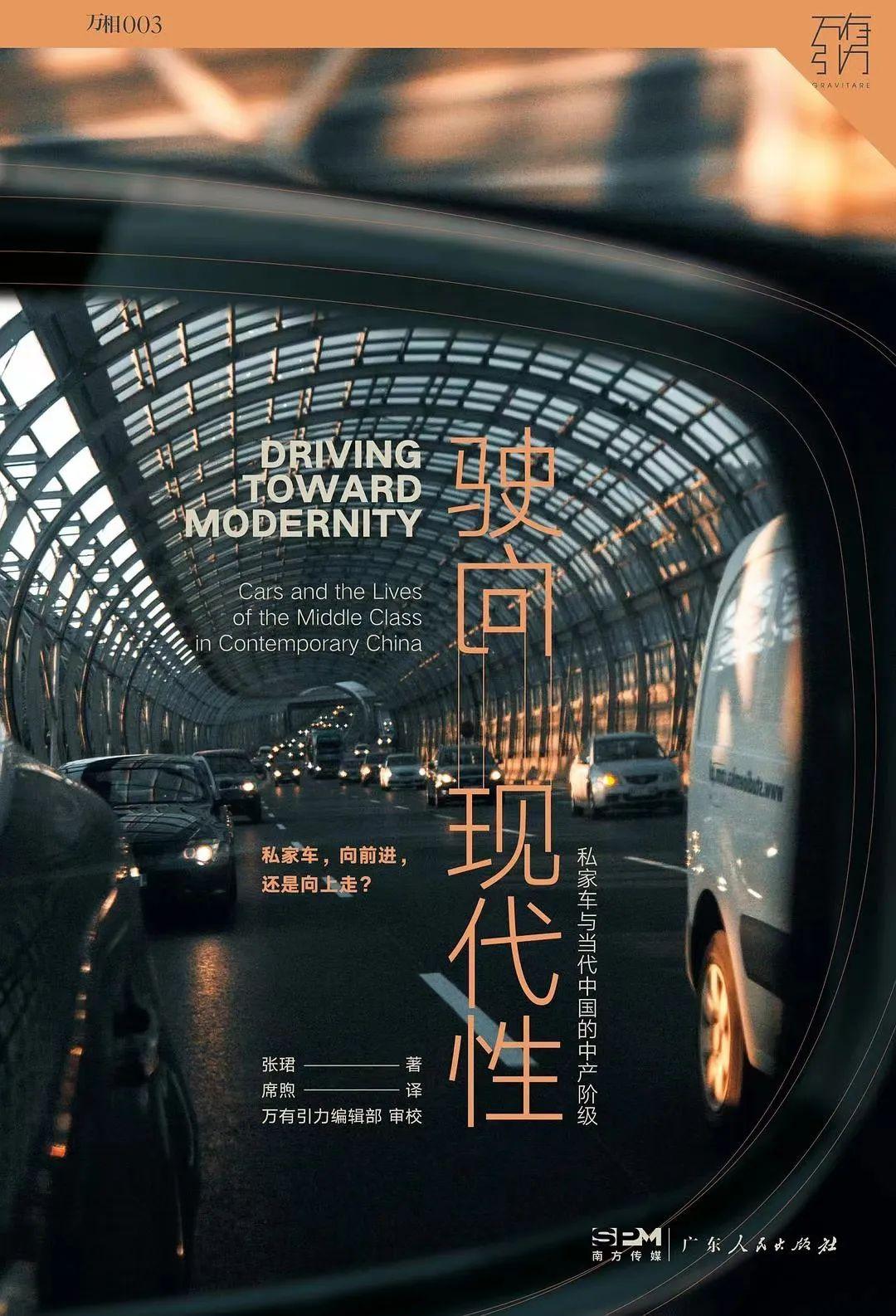
Heading for Modernity: Private Cars and the Middle Class in Contemporary China
By Zhang jun
Guangdong People’s Publishing House 2023-3
The book "Towards Modernity: Private Cars and the Middle Class in Contemporary China" published in February this year is the research result of Zhang Jun.
In Zhang Jun’s research, modernity is more a subjective "imagination", a feeling and yearning. As a mirror, cars can help us understand the reactions and attitudes of ordinary people to social changes.
For example, most middle-class people in China think that buying a car will bring convenience, but in fact, after buying a car, they are often stuck in traffic or looking for a parking space. However, regardless of traffic jams, finding parking spaces, gas stations and charging piles, car owners have shown considerable tolerance for these years of "non-freedom" and "inconvenience".
"This contradictory attitude is actually a manifestation of the middle class in China shaping their identity through cars." Zhang Wei said.

Automobile culture,
It’s not just "car-playing culture"
new weekly Do we mean the design, function and driving experience of automobiles, or a series of social phenomena derived from the prosperity and development of automobiles?
Zhang jun It is generally believed that automobile culture should focus on the automobile itself, such as the design, function and driving experience of the automobile, but this is only one of them. In fact, from the design, function and driving experience of cars to the different relationships between cars and people, cities and environment, even the overall planning of cities and the way people buy cars are all the contents that can be expressed by car culture.
Let me give you a simple example. For example, many countries and regions in the world have systematic expressways, and only some expressways in Germany have no speed limit. Many people will think that the highway with unlimited speed is unsafe, but when I was traveling in Germany, I found that many Germans thought it was okay. The steering wheel of German cars is generally heavy, while Germans think that "only cars with heavy steering wheels can drive fast", and the steering wheel that is too light is easy to get out of control after driving at high speed.
These phenomena are actually related to the driving habits of Germans, including their self-discipline when driving, local laws and regulations in Germany, and Germans’ understanding and understanding of "speed". These are a series of social, economic and cultural phenomena derived from cars becoming mass consumer goods, all over the world.
new weekly There is always the voice that "there is no car culture in China", and many people blame it on China’s inability to keep the so-called "sentimental car". Do you think that’s true?
Zhang jun Many people (especially young people) always regard playing with antique cars, sentimental cars and other personalized ways as the only way to express automobile culture. I think this is the biggest misunderstanding of automobile culture. China has always had its own automobile culture, such as "distinguished Mercedes-Benz owners", "officials like to drive Audi" and "please don’t touch me when I buy a BMW", etc. These interpretations of different automobile brands are a kind of automobile culture.
I remember when I was doing automobile research more than ten years ago, many interviewees told me that his/her decision to buy a car was "no Japanese car" because of the historical relationship between China and Japan. This is a very concrete example. Individuals’ views on international relations and attitudes towards history can be transformed into specific personal consumption, especially on the level of mass consumption such as buying cars.
But I don’t think this is a unique phenomenon in China. It’s just that China has a large population base, so it’s sometimes easy for people to regard this behavior of "reflecting international relations to individual car buying decisions" as a unique car culture in China.
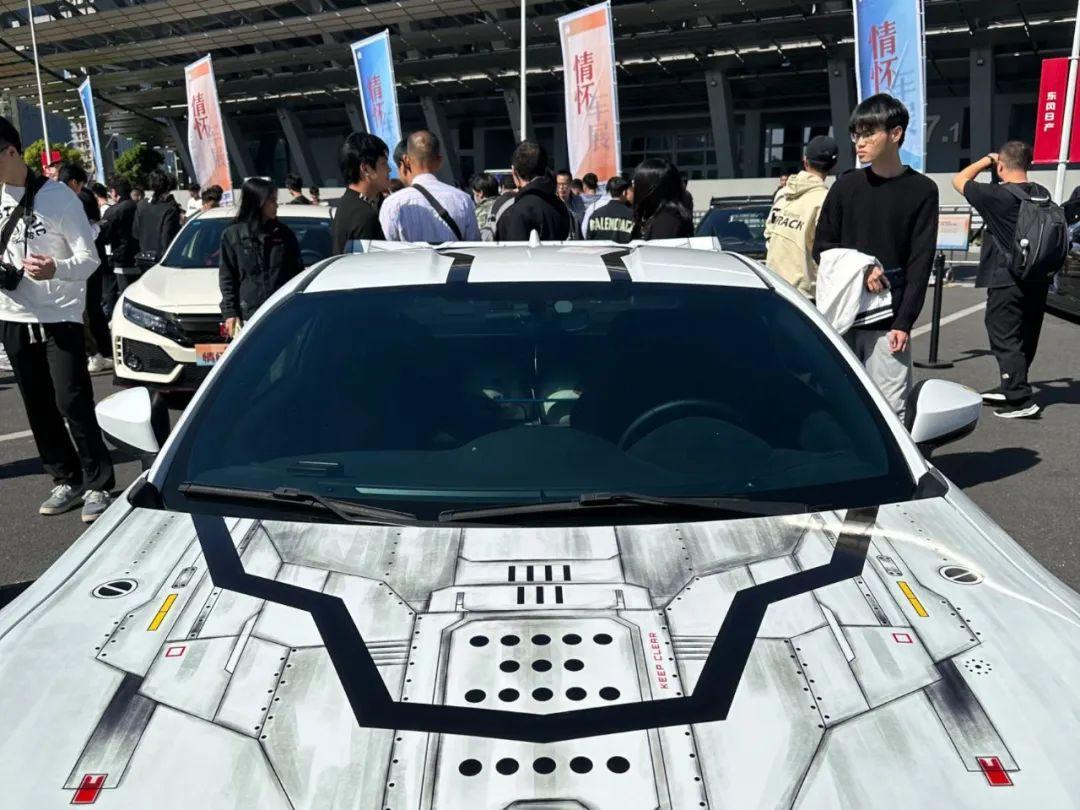
At the same time as this year’s Guangzhou Auto Show, the "sentimental old car" exhibited outside the Canton Fair exhibition hall also made people stop. (Photo/New Weekly reporter DR)
new weekly If you want to discuss the car culture with China characteristics, what do you think it will be?
Zhang jun Apart from the interpretation of different cars, I think the attitude of China people towards new energy vehicles is also a reflection of automobile culture. The most obvious thing is that nowadays we can often see people rushing to buy new energy vehicles.
Why is there such a change? With the development of China’s economy, the potential of consumers to buy cars has been activated. The automobile policy has also changed. On the one hand, the state strongly encourages the development of new energy vehicles and provides various policy support. On the other hand, it is easier to buy new energy vehicles, and it doesn’t take months or even years to get a license plate. All these make the middle class eager to buy a car turn to buy new energy vehicles. The formation of culture is always complementary to social context and economic development, but it is not static.
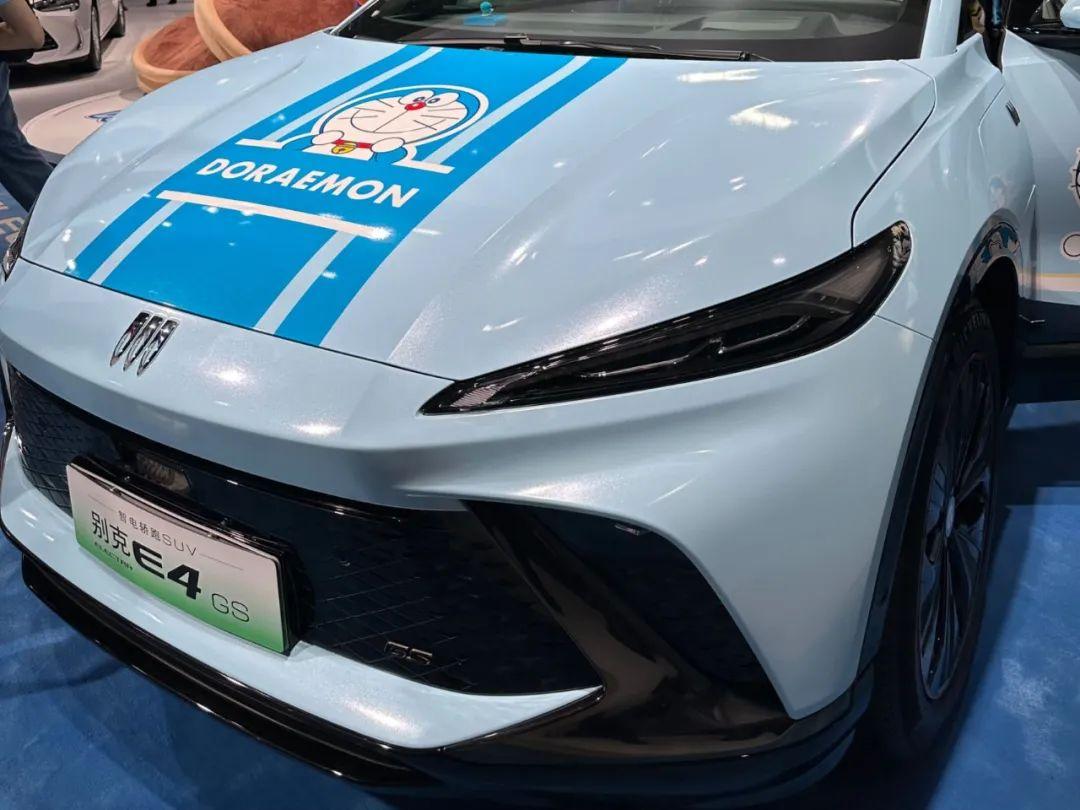
The well-known automobile culture complements the social context and economic development. (Photo/New Weekly reporter DR)

After having a car,
Is life more convenient or more troublesome?
new weekly Is the relationship between cars and cities interdependent or a subsidiary relationship?
Zhang jun In China, after the automobile became a mass consumer product, it promoted the urbanization process. With the population growing and the urban area expanding, various elements of the city changed around the automobile. The most obvious thing is that the roads are wider and wider, and the infrastructure is constantly updated and iterated. Urban planning alsoSubconsciously think that urban roads should be dominated by cars, cars occupy the most important position in urban life, and people’s travel concepts have also changed.
But the relationship between private cars and public transportation is not a simple substitute. For example, in the United States, except for a few big cities, public transportation in many places is very fragmented and backward, and railways are often in disrepair. Especially in the suburbs, public transportation is underdeveloped, the local car ownership is very high, and almost everyone can drive. However, in many European countries, the private car ownership rate is also among the best in the world, but the local railway network is very developed, and many people commute by train every day. The bicycle ownership rate in Germany, the Netherlands and other countries is among the best in the world.
After all, there are not only cars in a city.Our choice of transportation is closely related to the economy, culture, urban construction and infrastructure of a place at a specific level.
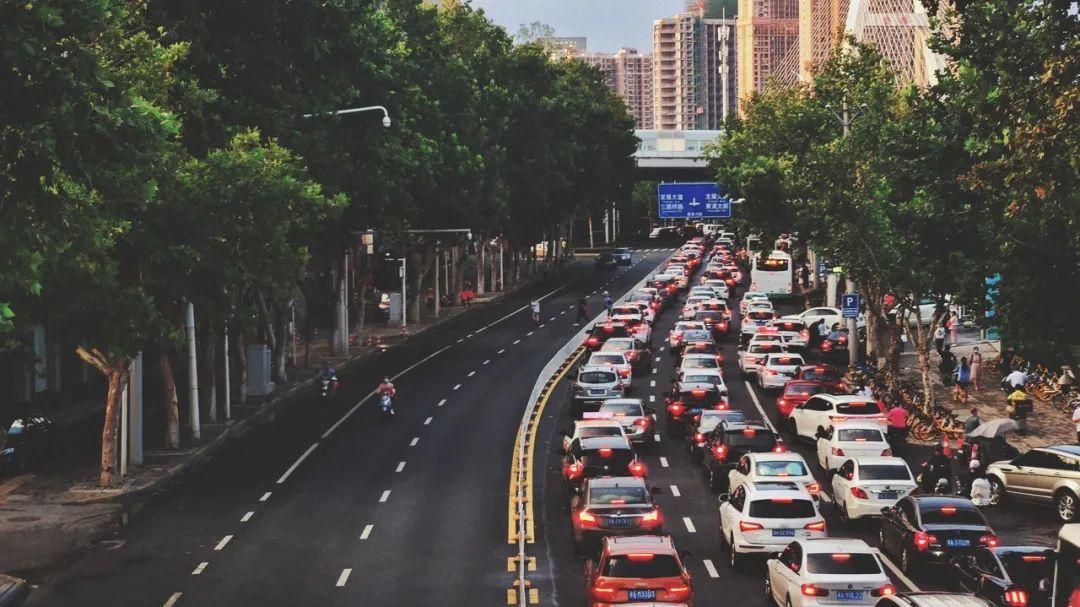
Cars are not the only means of transportation in a city. (Figure/Figure Worm Creativity)
new weekly : "Life becomes very convenient after owning a car". Why do most middle-class people in China generally hold this idea?
Zhang jun We need to throw out a classic discussion first: Is it just necessary to buy a car? I think whether a person buys a car or not is more about realizing his own desires.
The specific content of desire will vary from time to time and from place to person. For example, in Hong Kong, most places can be reached by public transportation, but many roads in Hong Kong are occupied by all kinds of private cars. Is the purpose of this part of the car owners really "just need"? Some scholars have suggested that demand is actually created, not pre-existing. Manufacturers need to sell cars and guide and shape individual demand for cars in various ways.
As for whether life after owning a car has become more convenient, it may be more convenient to some extent, but it is also more inconvenient.After buying a car, many people begin to take their families out to play and eat in restaurants from time to time, but at the same time they have to endure the pain of traffic jams, construction detours and finding parking spaces after arriving at their destinations. Also need to consider which car insurance to buy, where to refuel, charge and maintain.However, most people will think that these "inconvenient" factors are relatively less important.
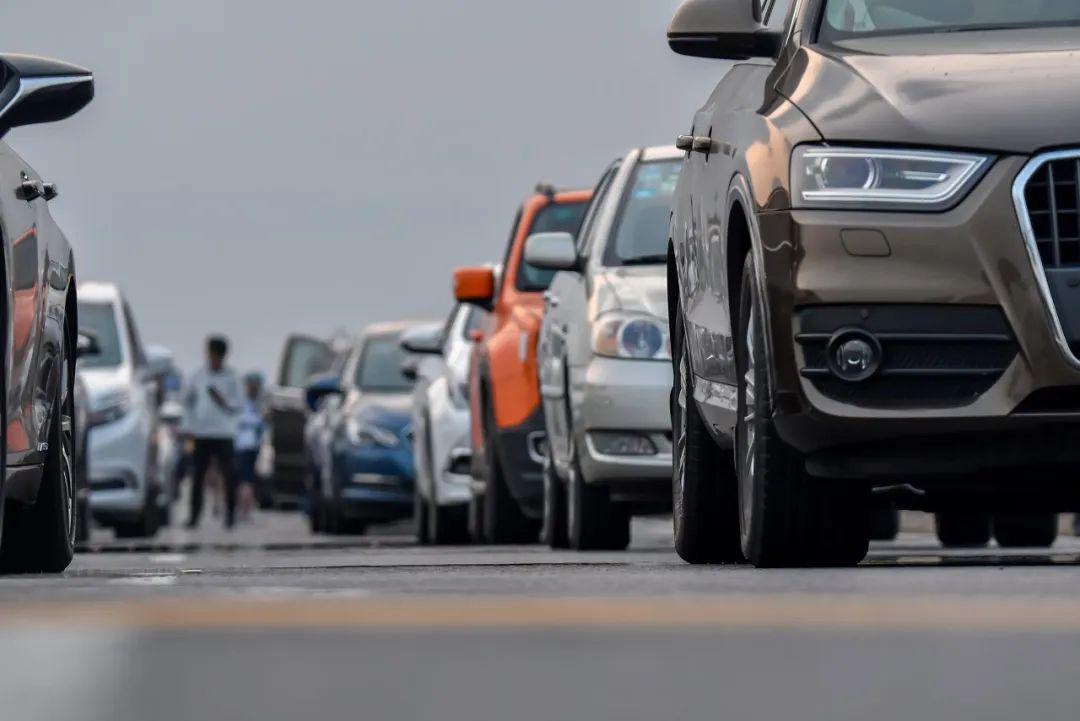
Is life after having a car really more convenient? (Figure/Figure Worm Creativity)
new weekly From this point of view, cars are not a symbol of "freer lifestyle"?
Zhang jun At the beginning of the popularity of household appliances in the 1960s and 1970s, people thought that electrical appliances could help people release their hands and improve efficiency, so they bought them in large quantities. Around the Millennium, personal computers gradually became popular, and people also hoped to use computers to improve productivity. Almost every household had computers and connected to the Internet. But in fact, we found that,In fact, life is not necessarily more free than before, because since the advent of household appliances and computers, people have to spend more time dealing with them, and their dependence on certain things is increasing, as is the case with cars.
This refers not only to the use of the car itself, but also to some operations that we take for granted today. Although they are free and convenient, they are not. During the Mid-Autumn Festival this year, I took the high-speed train from Hong Kong to Guangzhou. After my family picked me up by car, I spent a lot of time driving out of the parking lot of Guangzhou South Railway Station. The reason is that the parking lot is paid by brushing the code, but the network in the parking lot is not good, so that every car has been brushed for a long time to pay the fee, and the cars behind it can only be "blocked" in the parking lot.
In fact, there are many similar examples, including many Hong Kong media reports that the recent "Easy Pass" in Hong Kong failed to pay regular fees. The progress of science and technology and the enrichment of material life will not necessarily make people’s lives easier and more comfortable. On the contrary, they need to be forced to bear heavier material and spiritual burdens in some aspects.

The car is also a social symbol.
new weekly Today, people in China pay special attention to the license plate, and the arrangement of letters and numbers in the license plate often leads to discussion. You also used a chapter in "Towards Modernity" to discuss the license plate. Why do people pay so much attention to it?
Zhang jun In fact, people began to pay attention to license plates after cars became widely popular. After the new millennium, many big cities in China are holding "license plate auctions", and these auctioned license plates are all "lucky license plates"-or "face license plates" with lucky numbers. At present, there are still license plate auctions in many big cities, but the purpose of the auction is no longer to "Geely", but to alleviate the traffic congestion in cities and limit the number of motor vehicles in cities.
But no matter how the form changes, the license plate has always been a symbol of identity, but the way to interpret a license plate today will be different from that of 10 years ago. For example, it is getting harder and harder to own a blue card in a big city. Many people shake the number for several years without winning the lottery, so they will consider whether to buy a new energy vehicle.
However, in contemporary society, the license plate is equivalent to everyone’s ID card, and it is an important part of the motor vehicle management system. Only after the license plate number is bound to the owner, people pay more attention to it.
The binding relationship between the license plate and the owner makes people pay more attention to this string of numbers. (Figure/Figure Worm Creativity)
new weekly You have discussed the symbolic function of cars. When there are more and more cars and more styles, can this symbolic function still work?
Zhang jun No matter how the car develops, this symbolic function will always exist. In fact, everything around everyone, no matter how big or small, can become a "symbol" representing a person. For example, the glasses worn by a person look ordinary, but they must have been carefully selected before they were selected.
We can’t read a car in the same way. I remember that when I traveled to Germany in 2004, all the taxis on the street were Mercedes-Benz, which was quite different from the image of "distinguished" in the eyes of China people. This is a typical example. After all, many people think that taxis should be economic and practical representatives, and luxury cars such as Mercedes-Benz are not suitable for taxis in China. However, in Germany, Mercedes-Benz is as common as BYD and GAC on the road in China, and it has a more detailed understanding of the market. Mercedes-Benz can be a luxury brand or a symbol of economic application.
The same car, the same car brand, China people will think so, foreigners may hold the opposite view. People in different regions have different understanding of the automobile and the automobile market, so the "symbol" of a car will also change with the change of time and space.
At Guangzhou Auto Show, BMW staff visited and tested the Aouita Auto Show. (Photo/New Weekly reporter DR)
But I think the price of the car is only one of the factors. Some people like luxury cars, and some people will love ordinary family cars; Some people love economical and applicable Japanese cars, while others think that German cars have a profound history and a thick and safe design, so they have become fans of BBA. These statements may be reasonable, but they often lead to heated discussions between car owners or potential car owners. For example, advocates of Japanese cars may say that if a person’s driving habits are very bad, no matter how safe a German car is, it may not be able to protect him at a critical moment.
new weekly In other words, "You should do more homework whenever you buy a car, otherwise it will be very difficult to choose a car", which is true.
Zhang jun Whether a car is good or not depends to a considerable extent on what the people who buy it think. After all, everyone’s car preferences are different, and everyone’s understanding of the same technical indicators may be different. When someone says that a car is good or not, it is inevitable to have subjective judgment in many cases. If the owner changes, the driving experience of the design and performance of a certain car may be different.
The reason behind the discussion of oil trucks and trams is actually exactly the same. Some people need to drive long distances frequently, so they may be more inclined to buy oil cars. If you buy trams, you may have to consider whether there are charging stations along the way, whether these charging stations can be used, whether they will queue up, etc. However, if the purpose of buying a car is only to commute to work or to commute for a short distance, then you may think more about trams. Therefore, it is very important to do your homework before buying a car, and it is more important to understand the performance and parameters of the car, and to understand your own car demand, driving habits and driving preferences.
It is hard to say whether new energy vehicles can completely eliminate traditional fuel vehicles.
new weekly In Weibo, a big car V expressed the view that compared with oil cars, new energy vehicles are "more like a tailor-made private commodity". What do you think?
Zhang jun I think it’s more like a slogan carefully designed for marketing purposes, because since Ford mass-produced Model T more than 100 years ago, the production process of automobiles has been standardized-only large-scale assembly line production can reduce costs and thus occupy a place in the mass market. Today, the production and manufacturing of new energy vehicles are the same. For the same Tesla Model 3, Zhang San’s interior is equipped with leather seats, Li Si will replace the original car stereo with a more advanced one, and Wang Wu bought a version with a longer cruising range, but everyone drives the Model 3 made by Tesla.
Many people think that a "tailor-made" car is actually constantly polished and modified in a car composed of the same system, frame and chassis, no matter whether it is an oil car or a tram.A car will always have room for people to show their individuality and become a "tailor-made" private commodity, but from the perspective of economic development, a car sold on a large scale in the market cannot be "tailor-made".
new weekly : The new energy vehicle market is booming. What do you think of Tesla and Wei Xiaoli?
Zhang jun : I don’t like to use "new forces" to describe the new generation of car companies such as Tesla and Wei Xiaoli. These car companies can become the focus of market attention, which is mainly related to the drastic changes in the world’s economic and social environment-many countries and regions have begun to attach importance to environmental protection and pay attention to the development of clean energy and new energy to reduce their dependence on oil and fossil fuels. These electric vehicle companies have sprung up in recent years, which can be said to enjoy the development dividend brought about by the changes in the big environment.
After the development of new energy vehicles, new generation car companies such as "Wei Xiaoli" often become the focus of social attention. (Photo/vision china)
Nevertheless, I think it is difficult to answer this question at this stage whether new energy vehicles can completely eliminate traditional fuel vehicles. Before, I heard from a friend who switched to a new energy vehicle that it is often necessary to "accurately calculate" the car time when driving for a long trip, and even turn off the air conditioner when necessary to ensure that the car can reach the next charging station. The car habit is completely different from that of driving a fuel car in the past.
Many people think that the purpose of developing new energy vehicles is to replace traditional fuel vehicles, because fuel vehicles are very polluted, and the pollution of new energy vehicles is far less than that of oil vehicles, and even "zero pollution" can be achieved. But this is only for emissions. Is the power battery of new energy vehicles polluted in the process of battery production? There must be, but not everyone can detect it.I think that both ordinary consumers and experts and scholars may need to pay more attention to the environmental pollution caused by power batteries, rather than obsessively comparing the differences between oil trucks and trams on the surface.
new weekly Nowadays, cars are paying more and more attention to comfort and intelligence, as if they have become a technological product. What do you think of this trend?
Zhang jun I think it is more appropriate to use "digital products" to describe the current cars. When a car is loaded with more and more digital devices, it may be a good thing, but it may also be a bad thing-these devices can bring us all kinds of convenience, but they also limit the way we use the car.
For example, most cars have a reversing radar or a reversing camera. Nowadays, electric cars also have a body-surrounding radar, and almost everyone will look at the camera to reverse into the warehouse. If one day all these functions fail and the camera can’t be used to assist parking, most people may feel at a loss and don’t know what to do for a while, because we subconsciously take it for granted to watch camera parking, and over time, muscle memory is formed.
Therefore, when many people go to other places in go on road trip, they feel "unfamiliar" with their rented cars, and it is difficult to get started for a while. It is precisely because "digital products" have changed people’s driving habits.
In the era of intelligence, is it really better to have more digital products in cars? (Photo/New Weekly reporter Liang Haoshe)
Some time ago, after the news that Weimar Automobile was suspected of bankruptcy came out, many people began to worry about what to do with their electric cars in case of bankruptcy. In the past, a car with few digital products, whether it was Volkswagen or Toyota, could always find parts to repair quickly when the car broke down, because everyone’s principles were actually similar.
However, in the era of electric vehicles, the configuration between cars is very different. If there is a problem with the intelligent system of the car, it can only be upgraded by the manufacturer, otherwise it will become a brick like the mobile phone that cannot be updated, and the maintenance dilemma after the collapse of the car company is not difficult to understand. I think it needs to be treated dialectically whether the car after becoming a digital product provides convenience or "adds congestion" to daily life.
Proofreading: Yang Chao, operation: Lu Zirui, typesetting: Chen Zexin.
关于作者